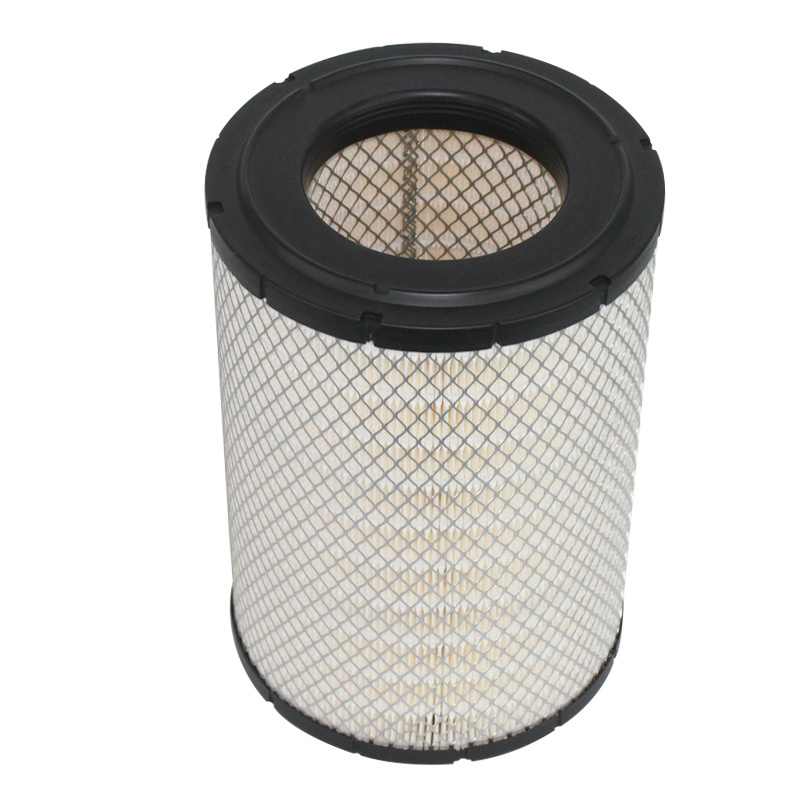How Often Should You Replace Your Car's Air Filter for AC? A Comprehensive Guide
Sep 22,2025
How Often Should You Replace Your Car's Air Filter for AC? A Comprehensive Guide Understanding the Role of Air Filters in Your Vehicle The air filter plays a crucial role in maintaining the quality of air that circulates in your car's cabin, which directly impacts your comfort and the performance of your air conditioning (AC) system. By filtering out dust, pollen, and other particulate matter, the

How Often Should You Replace Your Car's Air Filter for AC? A Comprehensive Guide
Understanding the Role of Air Filters in Your Vehicle
The air filter plays a crucial role in maintaining the quality of air that circulates in your car's cabin, which directly impacts your comfort and the performance of your air conditioning (AC) system. By filtering out dust, pollen, and other particulate matter, the air filter ensures that the air you breathe inside your vehicle remains clean and fresh.
The Importance of Clean Air in Your Vehicle
Clean air is vital not just for comfort, but also for health. A clogged air filter can introduce allergens and pollutants into the cabin, potentially leading to respiratory issues and allergies. Furthermore, a dirty air filter can strain your vehicle's AC system, leading to decreased efficiency and higher fuel consumption.
How Often Should You Change Your Air Filter? Factors to Consider
The frequency at which you should replace your car's air filter can vary based on several factors. Understanding these factors can help you determine the best replacement schedule for your vehicle.
1. Manufacturer Recommendations
Most manufacturers suggest replacing the air filter every 12,000 to 15,000 miles. However, this interval can vary based on your driving habits and conditions. Always check your owner's manual for specific guidance tailored to your vehicle model.
2. Driving Conditions
If you frequently drive in dusty or polluted environments, your air filter will likely accumulate debris much quicker. In such cases, it may be advisable to replace the filter every 6,000 to 10,000 miles. For those driving primarily in urban areas, where traffic congestion can lead to increased particulate matter, more frequent replacements may be necessary.
3. Seasonal Changes
Seasonal changes can also influence air filter longevity. For instance, during spring, when pollen counts are high, it may be beneficial to check and potentially replace your air filter more often. In winter, while there may be less pollen, other pollutants can still clog the filter.
4. Signs of a Clogged Air Filter
Being aware of the signs that indicate it’s time to change your air filter is essential. Here are some common indicators:
- Reduced Airflow: If you notice a decrease in airflow from your AC vents, your air filter may be clogged.
- Unpleasant Odors: A musty smell can indicate mold or mildew growing in a dirty air filter.
- Increased Dust Inside the Car: If you find more dust accumulating on surfaces inside your vehicle, it could be a sign of poor filtration.
- Frequent AC Usage: If you use your AC extensively, consider checking the filter more regularly.
Benefits of Regularly Replacing Your Air Filter
Maintaining a clean air filter offers numerous benefits that extend beyond mere comfort. Here are some compelling reasons to prioritize regular replacements:
1. Improved Air Quality
Regularly replacing your air filter ensures that the air inside your vehicle remains fresh and free of allergens and pollutants. This is particularly important for individuals with allergies or respiratory conditions.
2. Enhanced AC Efficiency
A clean air filter allows your AC system to operate efficiently. When the filter is clogged, the AC has to work harder to pull air through, leading to increased energy consumption and potentially causing system damage.
3. Better Fuel Economy
An efficient AC system can contribute to better fuel economy. A clogged filter means more strain on the engine, resulting in higher fuel consumption. By maintaining a clean air filter, you can help your vehicle operate more efficiently, ultimately saving you money at the pump.
4. Prolonged Vehicle Lifespan
Regular maintenance, including air filter replacements, contributes to the overall longevity of your vehicle. By ensuring your systems work efficiently, you can avoid more significant issues down the line that could lead to costly repairs.
How to Replace Your Car's Air Filter
Replacing your car’s air filter is a straightforward task that can often be done at home. Here's a step-by-step guide to help you through the process.
1. Gather Necessary Tools
You will typically need:
- A new air filter (make sure it’s compatible with your vehicle)
- A screwdriver (if needed)
- A clean cloth (for maintenance)
2. Locate the Air Filter
The air filter is usually located in the engine compartment or behind the glove box, depending on your vehicle model. Consult your owner’s manual if you’re unsure.
3. Remove the Old Air Filter
Carefully remove any screws or clips holding the filter in place. Gently pull out the old filter and inspect it for dirt and damage.
4. Clean the Area
Before installing the new filter, use a clean cloth to wipe down the area where the filter sits. This will help remove any dust or debris that may have accumulated.
5. Install the New Air Filter
Insert the new air filter in the same position as the old one. Make sure it fits snugly and securely. Reattach any screws or clips removed during the process.
6. Test the AC System
Once installed, turn on your AC system to ensure it’s operating correctly. You should notice an immediate improvement in airflow.
When to Seek Professional Help
While replacing your air filter is a relatively simple maintenance task, there are times when it is best to consult a professional mechanic. If you are unsure about the process, or if your vehicle requires specialized tools, seeking professional help can prevent potential damage.
1. Complex Vehicle Models
Some vehicles may have more complicated air filter systems. If your vehicle model has a unique configuration, consider having a professional handle the replacement.
2. Other Maintenance Needs
If you're experiencing multiple issues with your vehicle's AC system or suspect there may be other underlying problems, having a qualified mechanic conduct a comprehensive inspection can save you time and money in the long run.
FAQs About Air Filter Replacement
1. How do I know if my air filter is clogged?
Signs of a clogged air filter include reduced airflow, unpleasant odors, and increased dust inside the car.
2. Can I clean my air filter instead of replacing it?
While some filters can be cleaned, most cabin air filters are designed for one-time use and should be replaced when dirty.
3. What type of air filter should I use for my car?
Refer to your vehicle’s owner manual for specific recommendations on the type of air filter suitable for your make and model.
4. Does replacing my air filter improve AC performance?
Yes, a clean air filter enhances airflow through the AC system, improving overall performance and efficiency.
5. Can I change my air filter myself?
Yes, replacing your air filter is a relatively simple task that most car owners can do without professional help.
Conclusion
Knowing **how often to replace your car's air filter for AC** is essential for maintaining optimal air quality and ensuring the longevity of your vehicle's systems. By considering factors such as manufacturer recommendations, driving conditions, and observable signs of a clogged filter, we can make informed decisions about when to replace it. Regularly changing your air filter not only enhances your driving experience but also contributes to better health and fuel economy. Embrace the importance of this simple yet significant maintenance task, and enjoy a cleaner, more efficient ride.
TAG:
Contact Us







